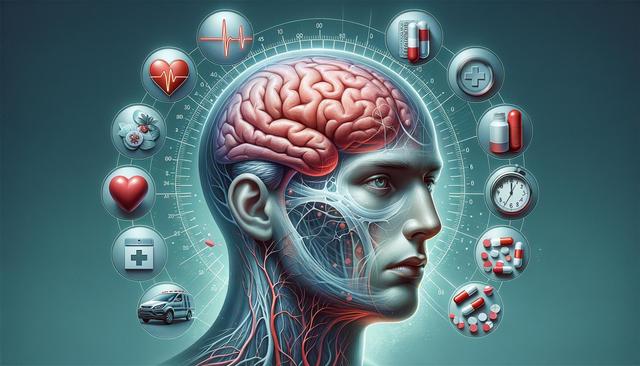Mood Swings and Emotional Changes
One of the most commonly reported signs of hormonal imbalance is mood instability. Hormones such as estrogen, progesterone, and cortisol play a significant role in regulating emotions and mental well-being. When these hormones fluctuate outside of their typical levels, individuals may experience unpredictable shifts in mood, including feelings of anxiety, irritability, or sadness. These emotional symptoms can appear without a clear reason and may be more intense than usual. For example, someone may feel extremely overwhelmed by small stressors or find it difficult to manage everyday frustrations.
Mood swings linked to hormonal changes are often observed during specific life stages such as puberty, pregnancy, postpartum, and menopause. However, they can also be triggered by conditions such as thyroid dysfunction or polycystic ovary syndrome (PCOS). Recognizing emotional irregularities and understanding their connection with hormone levels can be the first step in seeking appropriate treatment. If you find that your emotional well-being is persistently disrupted without a clear cause, it may be worthwhile to consult a healthcare provider for hormonal testing.
Unexplained Weight Gain
Gaining weight despite maintaining a stable diet and physical activity routine can be frustrating. Hormonal imbalance is often a hidden contributor to unexpected weight changes. Hormones such as insulin, cortisol, and thyroid hormones directly influence metabolism, fat storage, and appetite. When these hormones are out of sync, the body may start to store more fat or slow down calorie burning, leading to gradual or sudden weight gain.
Some key hormonal issues that can lead to weight gain include:
- Insulin resistance, often associated with type 2 diabetes or prediabetes
- Elevated cortisol due to chronic stress, which can promote fat storage, especially around the abdomen
- Hypothyroidism, a condition where the thyroid gland does not produce enough hormones, slowing metabolism
Addressing the root hormonal causes rather than focusing only on diet and exercise is essential for managing weight effectively. Medical evaluation and personalized treatment strategies, including lifestyle changes and, in some cases, medications, can help restore balance.
Persistent Fatigue and Low Energy
Feeling tired occasionally is normal, but persistent fatigue that doesn’t improve with rest may be linked to hormonal imbalances. Hormones regulate energy production in the body, and disruptions can lead to chronic tiredness or a lack of motivation. Low levels of thyroid hormones, for instance, are a common cause of fatigue, as they directly affect how the body converts food into energy.
Other hormone-related causes of fatigue include:
- Adrenal fatigue due to prolonged stress and high cortisol output
- Low estrogen levels, especially during menopause
- Imbalances in testosterone, which can affect both men and women and lead to low energy and decreased physical endurance
If you’re constantly feeling drained, even after a full night’s sleep, or find it hard to focus and stay productive, hormonal testing might help identify an underlying issue. Treatment can involve dietary adjustments, stress management techniques, and medical interventions to support hormone production and balance.
Irregular or Missed Periods
For individuals who menstruate, irregular cycles are a clear indication that something may be off hormonally. Regular periods depend on a delicate balance between estrogen and progesterone. When that balance is disrupted, it can lead to cycles that are unusually short, long, or completely absent. This symptom is particularly common in conditions such as PCOS, thyroid disorders, and perimenopause.
Key signs to watch for include:
- Periods that occur more than 35 days apart or closer than 21 days
- Skipped periods without pregnancy
- Heavy bleeding or spotting between periods
Tracking your menstrual cycle can help you identify patterns and provide valuable information to your healthcare provider. Irregular periods are not only a reproductive health concern; they can also signal broader hormonal issues that may affect metabolism, bone health, and cardiovascular function. Addressing hormonal imbalances early can help protect long-term well-being and fertility.
When to Seek Help and What to Expect
Recognizing the signs of a hormonal imbalance is important, but knowing when to seek professional help is equally crucial. If you experience multiple symptoms over an extended period, it may be time to consult a healthcare provider. A comprehensive evaluation often includes blood tests to measure hormone levels, a review of your medical history, and a discussion of your lifestyle and symptoms. In some cases, imaging tests may also be used to evaluate gland function.
Treatment options vary based on the root cause of the imbalance and may include:
- Hormone replacement therapy (HRT) for menopause or thyroid issues
- Medications to regulate insulin or manage PCOS
- Lifestyle changes, including improved nutrition, sleep hygiene, and stress reduction techniques
It’s important to remember that hormonal health is closely tied to overall health. Taking a proactive approach—through regular check-ups, awareness of symptoms, and maintaining a balanced lifestyle—can lead to significant improvements in quality of life.
Conclusion: Understanding and Addressing Hormonal Imbalance
Hormonal imbalances can affect people at any stage of life and may manifest in subtle or disruptive ways. Recognizing signs such as mood swings, weight gain, fatigue, and irregular periods is the first step toward improving your health. These symptoms often indicate underlying issues that deserve careful attention, not just temporary fixes. By listening to your body, seeking professional guidance, and making informed lifestyle choices, you can support hormonal balance and enhance your overall well-being. Awareness and early intervention are key to restoring balance and preventing longer-term health complications.


